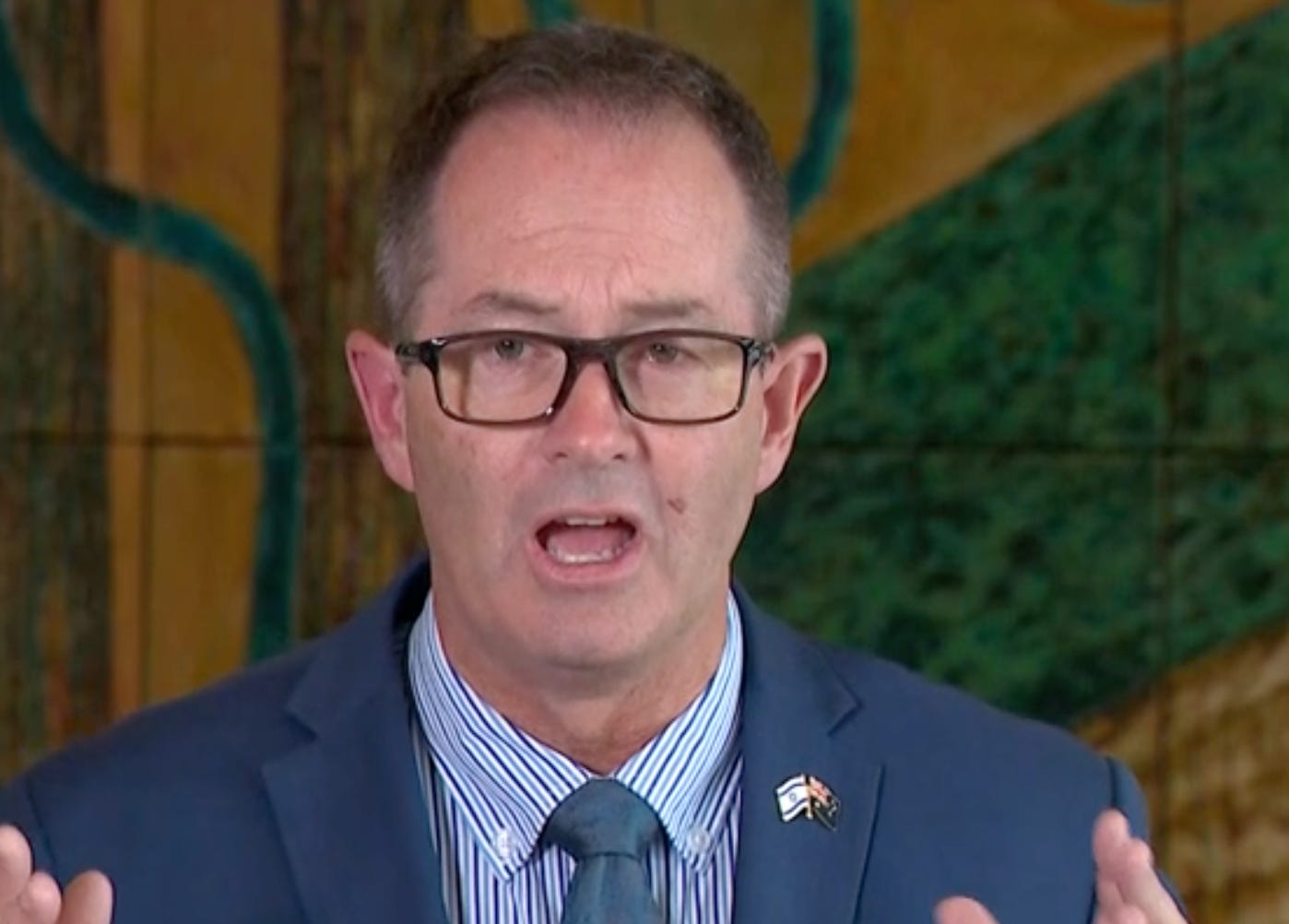Shadow Attorney-General Condemns FOI Bill as Threat to Democratic Transparency
This piece is freely available to read. Become a paid subscriber today and help keep Mencari News financially afloat so that we can continue to pay our writers for their insight and expertise.
Today’s Article is brought to you by Empower your podcasting vision with a suite of creative solutions at your fingertips.
Shadow Attorney-General Andrew Wallace delivered a sharp rebuke of the government’s Freedom of Information legislation today, warning that rushed passage of the bill through the House of Representatives represents “a bad sign for democracy.”
Wallace told reporters that nearly every stakeholder except the public service has condemned the legislation, which he characterized as an attempt to shroud government activities in secrecy. The bill passed the lower house earlier in the day with limited debate.
“You can’t make a silk purse out of a sow’s ear,” Wallace said. “Every single stakeholder, apart from the public service, has condemned this bill.”
The opposition MP emphasized that FOI laws serve as a cornerstone of democratic accountability, enabling ordinary citizens and journalists to question government actions. He framed the reforms as a concerning shift away from transparency.
Truth matters. Quality journalism costs.
Your subscription to Mencari directly funds the investigative reporting our democracy needs. For less than a coffee per week, you enable our journalists to uncover stories that powerful interests would rather keep hidden. There is no corporate influence involved. No compromises. Just honest journalism when we need it most.
Not ready to be paid subscribe, but appreciate the newsletter ? Grab us a beer or snag the exclusive ad spot at the top of next week's newsletter.
“FOI is important because it enables not just the media, but citizens, ordinary citizens, to be able to ask questions of their government,” Wallace said. “The concept of freedom of information is a fundamental tenet of our democracy.”
Wallace urged media organizations to intensify scrutiny of government operations in response to what he described as increasing opacity under the current administration.
“Where this government continues to throw a shroud of secrecy over its activities, then I encourage the members of the media to get in and start asking questions,” he said.
The press conference was cut short when parliamentary division bells rang, forcing Wallace to return to the chamber for a vote. The government has not yet responded to his criticisms or disclosed which stakeholder groups oppose the legislation.
Details about specific changes to FOI laws contained in the bill remain unclear, and the timeline for Senate consideration has not been announced.
Meanwhile, Independent MP Helen Haines joined the Coalition in criticizing the government’s handling of Freedom of Information law changes today, calling the reforms “government overreach” as debate was moved from Parliament’s main chamber to the federation chamber.
The member for Indi told reporters the legislation deserves “the full eyes of the Parliament on it” and raised concerns about expanded exemptions, new application fees and the elimination of anonymity protections that could hamper investigative journalism.
“I think there’s some significant government overreach here and I think it’s undermining the rights of everyday Australians to access information in a fair and transparent way,” Haines said.
The government shifted debate to the federation chamber, a move the Coalition characterized as an attempt to avoid scrutiny. Haines agreed the bill warranted discussion in the main chamber, where it would receive greater attention from MPs and media.
The Attorney-General has defended the reforms as necessary to address cumbersome processes that can tie up public agencies for months. Haines acknowledged legitimate concerns with current FOI laws but said the government’s response amounts to using “a sledgehammer” on the problem.
Her specific concerns include the expansion of Cabinet and confidence documents, which would prevent citizens from accessing information previously available under FOI. The reforms would also eliminate anonymity for applicants, a change Haines said would particularly affect investigative journalists.
“There are issues around charging people to make applications to FOI. That’s going to wipe out some people who can’t afford it,” Haines said.
The criticism comes as Parliament debates multiple pieces of legislation, including environmental protection law changes running alongside the FOI reforms.
Sustaining Mencari Requires Your Support
Independent journalism costs money. Help us continue delivering in-depth investigations and unfiltered commentary on the world's real stories. Your financial contribution enables thorough investigative work and thoughtful analysis, all supported by a dedicated community committed to accuracy and transparency.
Subscribe today to unlock our full archive of investigative reporting and fearless analysis. Subscribing to independent media outlets represents more than just information consumption—it embodies a commitment to factual reporting.
As well as knowing you’re keeping Mencari (Australia) alive, you’ll also get:
Get breaking news AS IT HAPPENS - Gain instant access to our real-time coverage and analysis when major stories break, keeping you ahead of the curve
Unlock our COMPLETE content library - Enjoy unlimited access to every newsletter, podcast episode, and exclusive archive—all seamlessly available in your favorite podcast apps.
Join the conversation that matters - Be part of our vibrant community with full commenting privileges on all content, directly supporting The Evening Post (Australia)
Catch up on some of Mencari’s recent stories:
It only takes a minute to help us investigate fearlessly and expose lies and wrongdoing to hold power accountable. Thanks!








